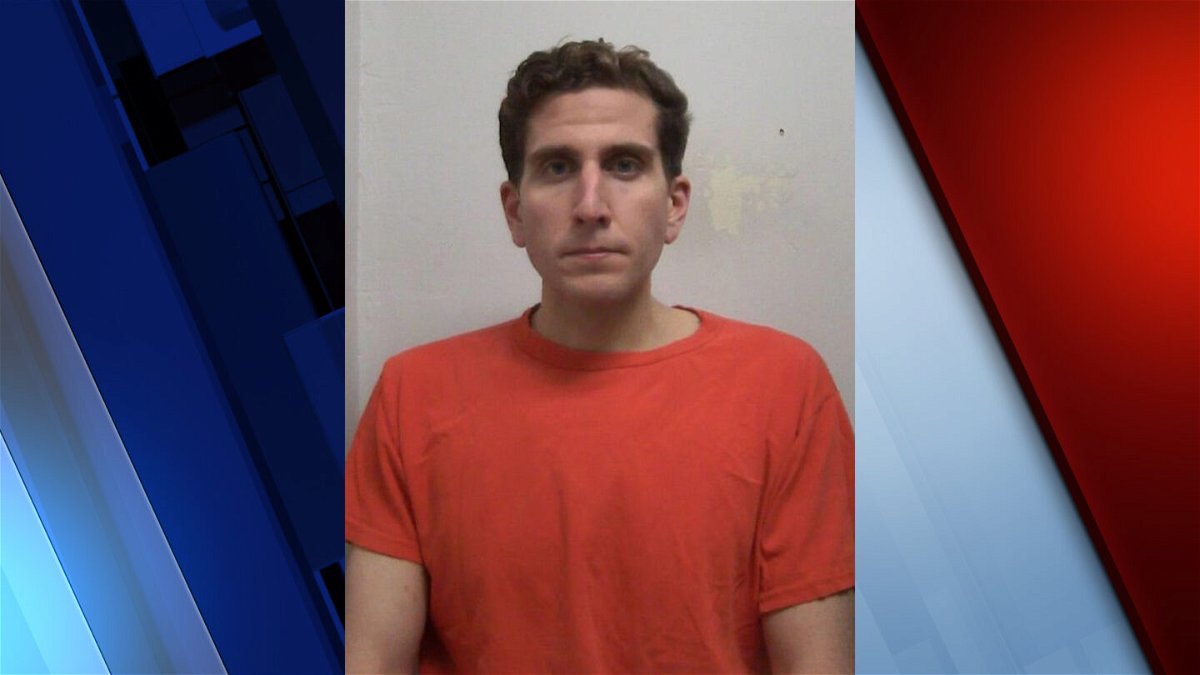EXPLAINER: What’s known, what’s next in Idaho stabbing case

BOISE, Idaho (AP) — The criminal case against a man accused of stabbing to death four University of Idaho students last November is underway, but it will likely be months or longer before the case goes to trial.
Bryan Kohberger, who was attending a nearby university around the time of the killings, is scheduled for a preliminary hearing on murder charges in late June. He was arrested Dec. 30 in connection with the deaths of Kaylee Goncalves, Madison Mogen, Xana Kernodle and Ethan Chapin.
Here’s a look at what is known so far about the killings, the suspect and the criminal case:
WHO IS THE SUSPECT?
Kohberger was arrested at his parents home in Chestnuthill Township, Pennsylvania, and extradited to Idaho where he is charged with four counts of first-degree murder and one count of burglary.
Before the arrest, Kohberger was working toward a doctorate in the Department of Criminal Justice and Criminology at Washington State University, located 9 miles (14.5 kilometers) west of the University of Idaho in Moscow. He is no longer enrolled at WSU.
Police haven't said whether they think Kohberger knew the victims.
WHO WERE THE VICTIMS?
All four were friends, and the three women lived together at the home just off campus where they were killed in the early morning hours of Nov. 13.
Kernodle, 20, was a junior studying marketing. She was from Post Falls, Idaho, and joined the Pi Beta Phi sorority. She was dating Chapin, who was visiting the house the night of the attack.
Chapin, 20, was from Conway, Washington, and was a triplet. His brother and sister also attend UI, and both Chapin and his brother were members of the Sigma Chi fraternity.
Goncalves and Mogen were both 21 and friends who grew up together in northern Idaho. Mogen worked with Kernodle at a Greek restaurant in Moscow. She was also a member of Pi Beta Phi.
Goncalves was a senior majoring in general studies, a member of the Alpha Phi sorority.
WHEN DID KOHBERGER BECOME A SUSPECT?
The Moscow Police Department released few details during the investigation but court documents show they began looking for a white sedan seen near the home at the time of the killings by late November. They asked regional law enforcement to join the search, and on Nov. 28 officers at Washington State University identified Kohberger's white Hyundai Elantra, looked up his name and noted he had switched his car registration from Pennsylvania to Washington state five days after the deaths.
It's not exactly clear when the WSU officers relayed that information to the Moscow Police Department, which asked the public for help finding the white Hyundai Elantra in early December.
According to the court affidavit, at some point investigators looked at Kohberger's history, and saw he had given a deputy a cell phone number during a traffic stop in August. Using the surveillance footage and cell phone data, they sketched out a possible travel route the night of the killings. Kohberger’s phone was turned off or on airplane mode around the time of the killings, police wrote in the affidavit, but the data right before it was turned off suggested he was heading in the direction of the home and the data after it was turned back on suggested he was heading away from the home.
Other cellular data suggested Kohberger had traveled to the neighborhood where the victims were killed at least a dozen times previously, always late in the evening or early in the morning, according to the affidavit.
A knife sheath was found at the home after the killings, and police believed it belonged to the attacker. A small amount of DNA was found on it that did not belong to the victims.
Kohberger left WSU for the winter break and was staying at his family's home in eastern Pennsylvania over the holidays. On Dec. 27, police in Pennsylvania recovered DNA evidence trash discarded from the family's home. The DNA evidence matched the DNA found on the sheath, according to the affidavit.
ARE THERE ANY OTHER SUSPECTS?
Speculation about a “co-defendant” was stirred up online this week after Kohberger’s defense attorney filed a standard “request for discovery” document in the court case.
In the request, the defense team asked for copies of evidence and any other related materials the prosecution and investigators have in the case, including details about Kohberger’s prior record, any tangible objects taken by police, the names of potential witnesses and any “statements by a co-defendant.”
That kind of language is common in discovery requests, however, and does not necessarily mean that either the defense attorneys or prosecutors think there is a co-defendant or even another suspect in the case. Attorneys frequently use their own templates for court documents as a way to make sure they don’t forget any important wording. If a second person ever is charged in the case, Kohberger’s attorneys will have already requested the evidence.
WHAT HAPPENS NEXT?
A preliminary hearing is set for June 26 and expected to take about five days. During the hearing, Latah County Prosecutor Bill Thompson is expected to attempt to convince a magistrate judge that there is enough evidence to support the felony charges against Kohberger. Defense attorney Anne Taylor will likely try to show that there isn't enough evidence to justify Kohberger being charged.
The hearing will likely be the first time that the prosecution's case is detailed in court, and both sides could call witnesses or subject matter experts to testify.
If the magistrate judge agrees that the charges are appropriate, the case will be moved into district court and Kohberger will be asked to enter a plea. The prosecutor has to let the court know if he will seek the death penalty within 60 days of the plea.
Often trials in murder cases come a year or more after the charges were first filed. If Kohberger goes to trial, it could be in 2024.






